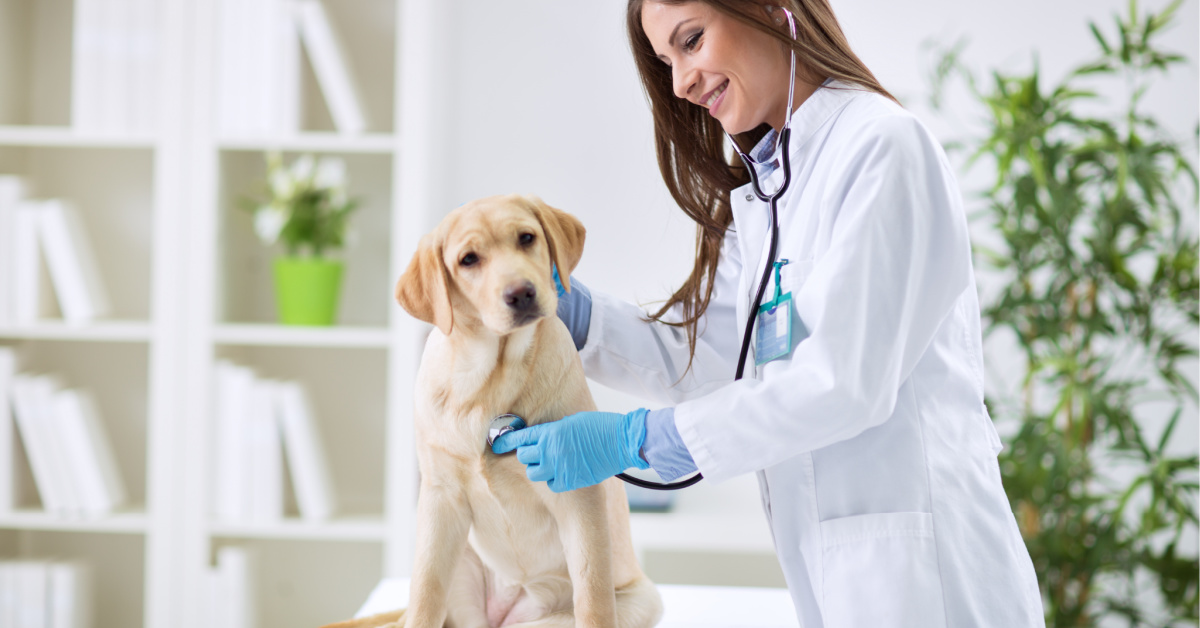Whether you have a Labrador puppy or an adult, knowing the basics of health care for your Labrador is crucial. It can help you make sure that your Labrador is healthy and happy while helping them live a long life.
Here are some things you need to know about basic Labrador health care:
Common Health Issues in Labrador care
While Labradors are a naturally healthy breed, they can be prone to certain health conditions and illnesses. Some examples of these include:
- Joint problems like elbow and hip dysplasia
- Obesity and bloating
- Heart disease
- Ear infections
- Arthritis
- Allergies (particularly in females)
- Panosteitis or “wandering lameness”
What Vaccinations Do Labradors Need for Health Care?
Vaccinations will vary on your area and your Labrador retriever’s needs. Some common vaccinations that your Labrador may need to get include:
- Rabies
- Hepatitis
- Canine distemper
- Canine parvovirus
Some other vaccines your dog may get, but which are considered non-core vaccinations, are Lyme vaccine, canine influenza, and rattlesnake vaccines, just to name a few.
The vaccines that your Labrador needs can vary based on factors such as their age, medical history, travel habits, environment, and lifestyle. Therefore, we recommend that you consult a veterinarian to discuss your Labrador’s vaccination schedule and vaccine requirements.
How Often Do Labrador Puppies Need to Go to the Veterinarian?
It would be best to bring your Labrador puppy to a vet several days after you bring them home for the first time. This way, your vet can assess your Lab pup to see what their health needs are and can give you an approximate schedule for vet visits.
Generally, you may need to bring your puppy to the vet every 2-6 weeks, depending on your pup’s needs, for the first year of its life.
How Often Do Adult Labrador Retrievers Need to Go to the Veterinarian?
When your Lab is between 1 to 10 years old, your dog only needs a physical exam once a year. Your adult dog may need to get booster shots as well. For instance, your Labrador may get rabies and distemper-parvo boosters every 3 years.
As for senior Labradors that are older than 10 years, they need to see a vet at least twice a year. Senior dogs are more likely to get a health problem, so finding the problem early and treating it will greatly enhance your Lab’s quality of life. Your vet may also suggest supplements and special diets for your senior Labrador retriever.
Signs for When You Need to Bring Your Labrador to a Vet
There are some signs that could signal that your Labrador needs urgent medical attention. Some of these indicators include:
- Unusual eating patterns (for instance, suddenly not eating for 2 days)
- Dry or rough coat
- Excessive thirst
- Unusual tiredness and lethargy
- Sudden weight loss
- Unusual stool (worms, diarrhea, mucus and/or blood in the stool, straining, etc.)
- Dragging/scooting rear on the floor
- Red and/or cloudy eyes
- Swollen and hard abdomen
- Seizure
Vomiting could also be another warning sign. While occasional vomiting would be fine (for instance, if your dog ate something that upset their tummy), there are some things you should look out for. You need to bring your Lab to a vet if your dog vomits several times within the day and/or frequently, has a fever, or vomits blood, among others.
Basic Dental Health Care for Labradors
Your dog’s dental health care is also important. Your Labrador’s teeth will usually get checked when you visit the vet. However, you need to make sure you take care of your dog’s teeth to prevent dental issues like gingivitis or tooth loss.
You can get special dog toothpaste and toothbrushes to brush your Lab’s teeth. Ideally, you need to brush your Lab’s teeth as often as you brush yours—twice a day. Most veterinarians would recommend brushing their teeth at least thrice a week, but twice a day would be best for your dog.
What Diet Should Labradors Have?
Each Labrador will have different needs, so we suggest that you talk to your veterinarian about what the best diet would be. Ideally, the healthiest food for your dog should be low in carbohydrates, but high in protein and fat.
If your Lab is not eating, however, you may check out our blog post to help you determine the next steps to take.
How Much Exercise Does My Labrador Need?
Labradors have lots of energy, so most Labradors will need at least 1 hour of exercise every day. If your Lab has tons of energy, then they may want as much as 2 hours a day! However, 45 minutes is fine for more relaxed Labrador retrievers.
Should I Have My Labrador Spayed or Neutered?
Most kennel clubs and veterinarians will agree that neutering and spaying your Lab is ideal. It reduces your Lab’s chances of getting serious illnesses like cancer. Plus, it can help get rid of unwanted traits in male Labrador behavior and avoid unwanted pregnancy in females.
It would be best to get the procedure done when your dog is at least a year old and weighs 45 pounds. If they are lighter or younger than that, it could increase their health risks. You want to make sure they are done with puberty before getting the procedure done.
Conclusion
Keeping your Labrador healthy starts with knowing the basics of your pet’s health care.
To keep your Labrador retriever in excellent health, you have to make sure that you are staying on top of their overall health. This means that you should oversee their diet, dental health, and physical activity, among other things.
Doing these small things and learning more about Labrador health care can help keep your Lab happy and live a long life.
If you are looking for information on dog health care tips that we haven’t covered yet, you may also consider bookmarking petMD as a resource.







